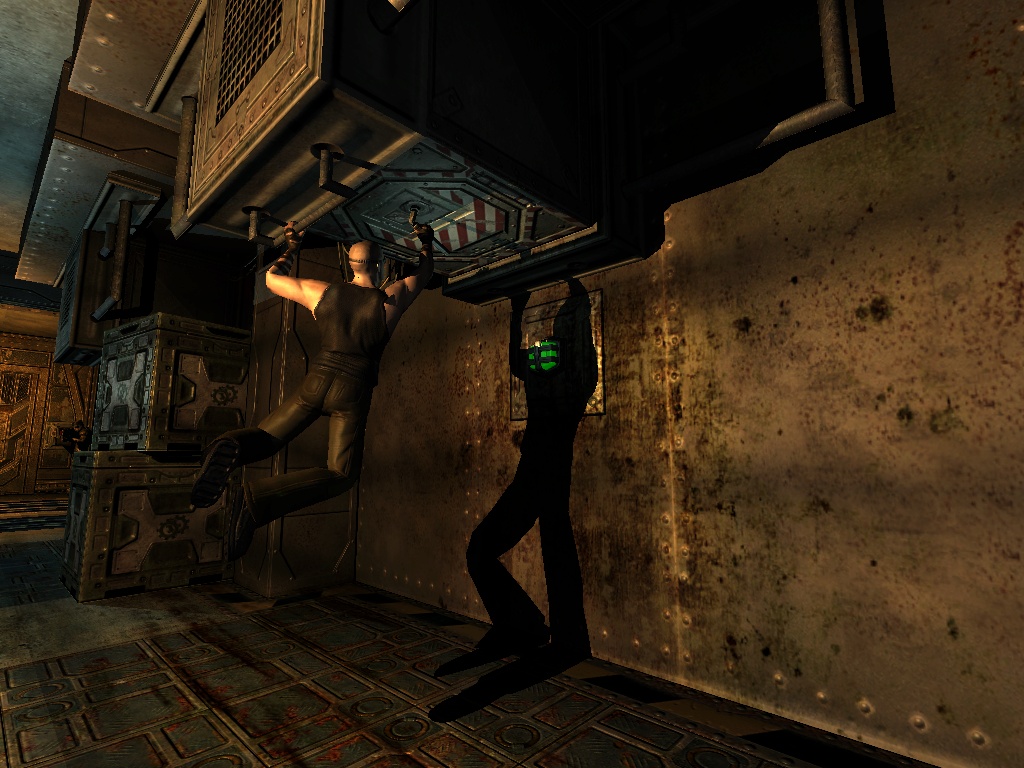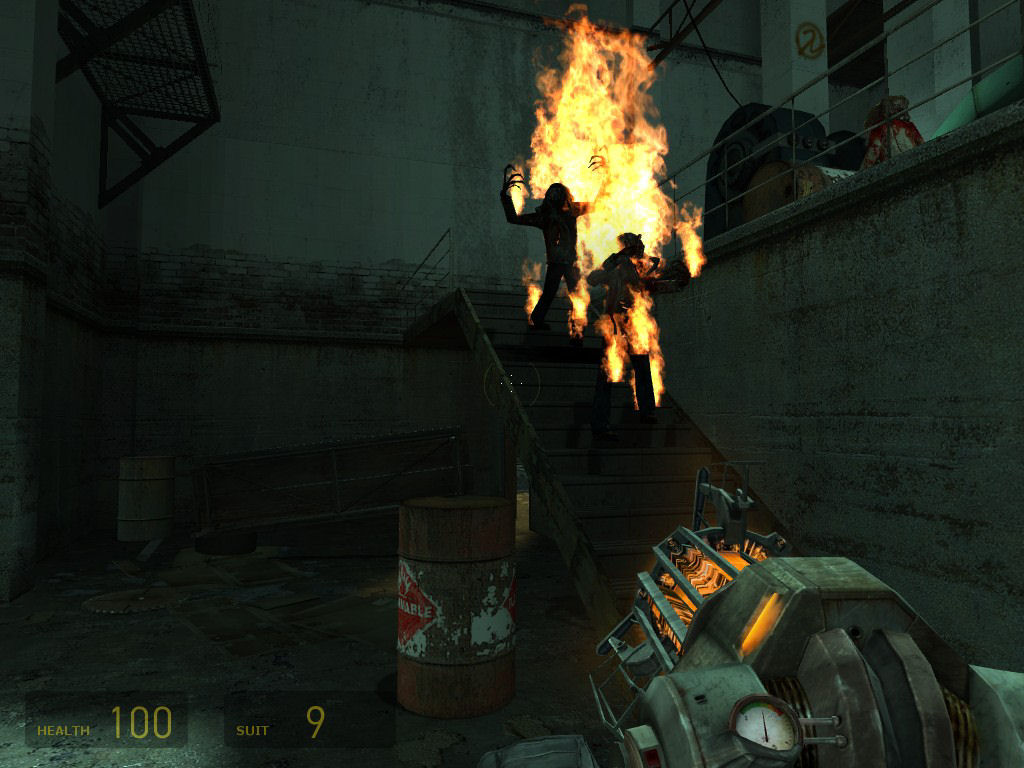As I posited previously games are a form of communication. The ways in which the player is able to express their intent to the game is only half the equation. Players perform actions in the world, using sentences formed from nouns, verbs and adverb-verb pairs, and the game responds by modifying the nouns (objects) and their adjectives (properties).
The common ground in the communication between player and game is the possibility space of the game itself, the game world and all valid objects and actions contained within. When the game communicates with the player it does so by modifying this common ground, the objects within the world and their properties. In a game of Thief: Deadly Shadows the game responds to the player sentance “Shoot Water Arrow at Torch” by changing the adjective describing the “Torch” from “Lit” to “Unlit”. This action changes the possibility space of the game, and the context of future player actions. Because the “Torch” is now “Unlit” the context of the verb “Walk” when used in the area around the “Torch” has been changed; the area is now dark and the player is less likely to been spotted.

In a reply to my previous post Mrop mentioned The Chronicles Of Riddick: Escape From Butcher Bay, in terms of the communication between game and player, there are very few instances in that game where the player is truly stripped of their verbs. The “Shoot” verb (A better definition might be “Fire”, or “Attack”) always exists, and is mapped to a specific button. Even without a weapon it can be used in the sentence “Shoot Fists”, which might not be grammatically correct in English but makes sense in the game context. What does occur in the game is that the player’s nouns are removed or modified; that is the objects that the player wields as opposed to the objects that exist within the world in general.
By changing, modifying the nouns in the world and those available to the player a game can change the style from combat, to puzzle solving, to navigation, to stealth. One of the best examples of this can be found in Half-Life 2. As the player moves through each chapter the objects in the world and the tools (Player nouns) available are changed. In ‘We Don’t Go To Ravenholm’ all previous verbs and adverb-verb pairs are still valid, the keys for “Shoot”, and “Walk” still perform the same actions, but the reduction in available “Ammunition” means more weapons are “Unloaded” and thus unusable. Combined with the increase in “Zombie” and “Trap” objects this chapter feel significantly different from subsequent chapters, such as ‘Sandtraps’. In this chapter there is an increase in the number of “Ammunition” objects, more weapons are “Loaded”, and there is an increase in “Antlions”. Even though the verbs themselves have not directly changed the nouns and their adjectives have; the context for the player’s actions has changed.

There are times when the game changes the actual verbs available to the player and the rules governing their interaction with nouns, this happens when there is multi-modal gameplay and can be confusing as players have to learn an entirely new grammar.
James Bond 007: Agent Under Fire features three distinct modes of gameplay. The most common gameplay mode is that of first person combat, the available verbs are ones common to similar titles, “Shoot”, “Walk” and “Reload”. The second mode is that of driving sections where the verbs change to “Accelerate”, “Brake” and “Handbrake”, the third mode is the “On Rails” sections where the verbs available consist of “Shoot”, “Turn 180 Degrees” and “Reload”. Although there is some crossover in terms of the verbs available often the key responsible for a particular verb is different in each section and requires players to learn a new vocabulary for specific sections of the game. As these sections don’t last for very long this can be distracting, by the time players have started to learn the new verbs, the new grammar, they have to revert to the old rules.
Keeping the verbs and grammar intact and changing the nouns results in changes in the style of play but doesn’t require players to relearn the how the game plays.
Changes to the verbs themselves and the rules defining their interaction with nouns, leads to multi-modal play that requires players to learn an entirely new way of playing.
2 replies on “Game Vocabulary.”
I guess I did not fully grasp your terminology in the last post, but this post makes your point much clearer. When I think more about, I feel like I have seen the grammar metaphor some place else, though I cannot remember where.
I make no claims that I am the first person to use this metaphor. Though I have found it an interesting lens through which to view games.